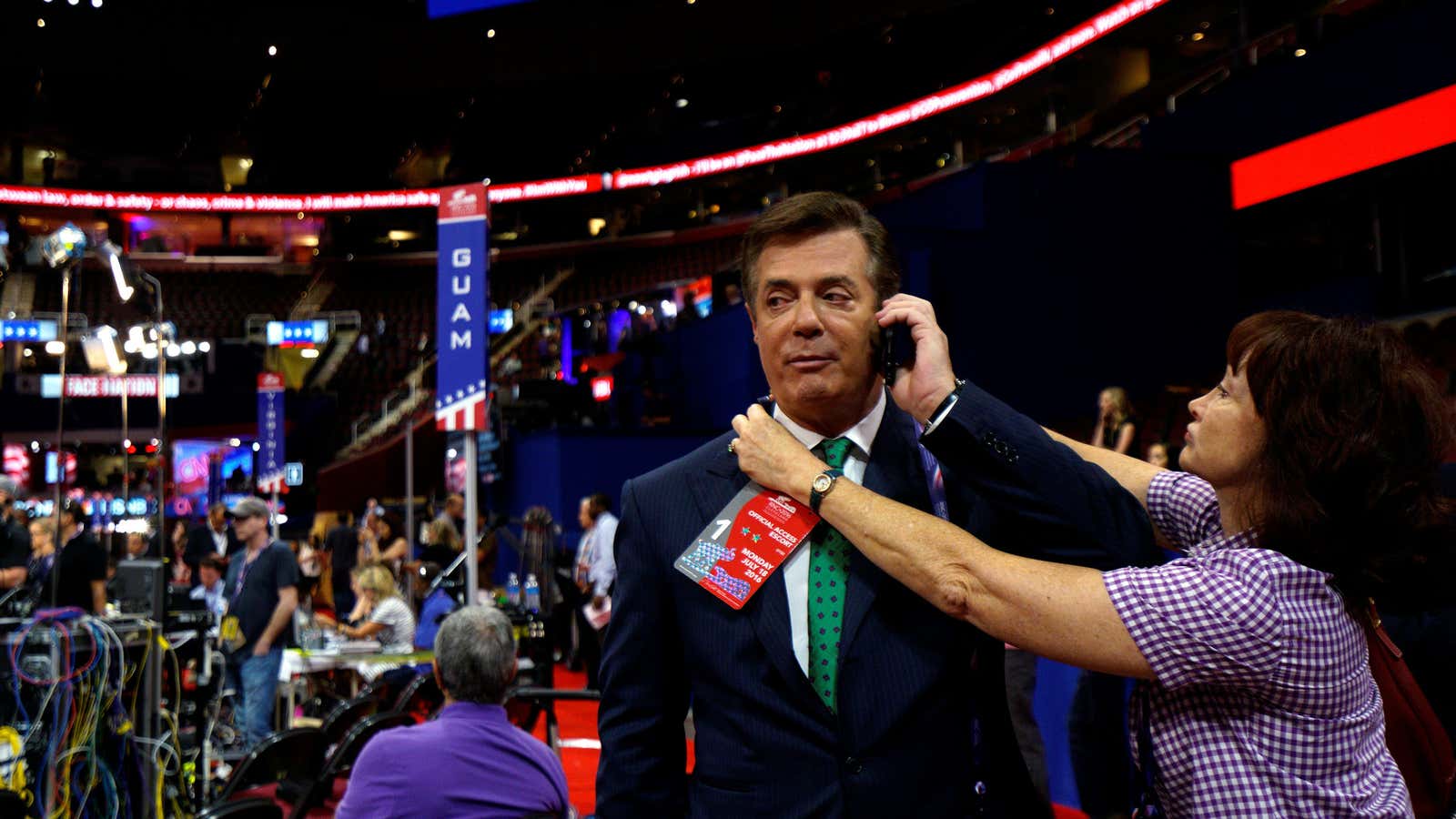Cleveland, Ohio
There it is, at the top page 42 of the spanking new GOP national platform (pdf)—an illuminating detail on how much Donald Trump is willing to support Ukraine.
Or, rather, there it isn’t. The most intriguing thing isn’t the platform’s vague vow to provide ‘appropriate assistance” to Ukraine’s military. It’s that the wording on the table in the draft was much stronger and more specific—before Donald Trump’s staffers stripped it from the final version.
This dog-that-didn’t-bark incident took place in Cleveland last week, as the national security subcommittee hammered out its section of the Republican national convention. One delegate proposed an amendment that would boost aid to Ukraine and “provide lethal defensive weapons,” according to an anonymous platform committee source.
However, as the Washington Post‘s Josh Rogin reports, Trump staffers intervened, coordinating with Trump-supporting delegates to delete the commitment to providing “lethal defensive weapons,” leaving in its place only a vow of “appropriate assistance to the armed forces of Ukraine.”
Trump is often criticized for keeping his policies vague—especially his foreign policy. But this curious episode suggests that sometimes there are very specific reasons for that vagueness.
Trump’s position on Ukraine and Russia has been somewhat ambiguous, but clearly more favorable toward Russia’s president Vladimir Putin than many US politicians and the country’s leadership. Speaking to each other through media, Trump and Putin have expressed, in their own way, mutual admiration for each other (although Putin’s motives in supporting Trump are perhaps more sinister, the Republican candidate being the perfect agent of chaos in America).
And pushback on Ukraine from Trump’s people isn’t all that surprising. Paul Manafort, his campaign chief, worked as a consultant for Viktor Yanukovych, Ukraine’s corrupt, pro-Russian president who was ousted by the popular Maidan revolution in 2013. In March prominent Ukrainian journalist Sergii Leshchenko told Quartz that Manafort was “the worst example of a political lobbyist,” who “who does not care about the reputation of the client.”
Although the issue of arming Ukraine has been a controversial one in the US, with the Obama administration opposing such assistance, John Kerry, the US secretary of state, visited Ukraine earlier this month, pledging support and more humanitarian aid to the country. Simultaneously, the US is beefing up its presence in NATO countries in Russia’s vicinity in an effort to deter Putin’s appetites. Ukraine has complained that Russia is not keeping up its end of the peace deal reached last year in the territorial conflict in Ukraine’s eastern regions.
